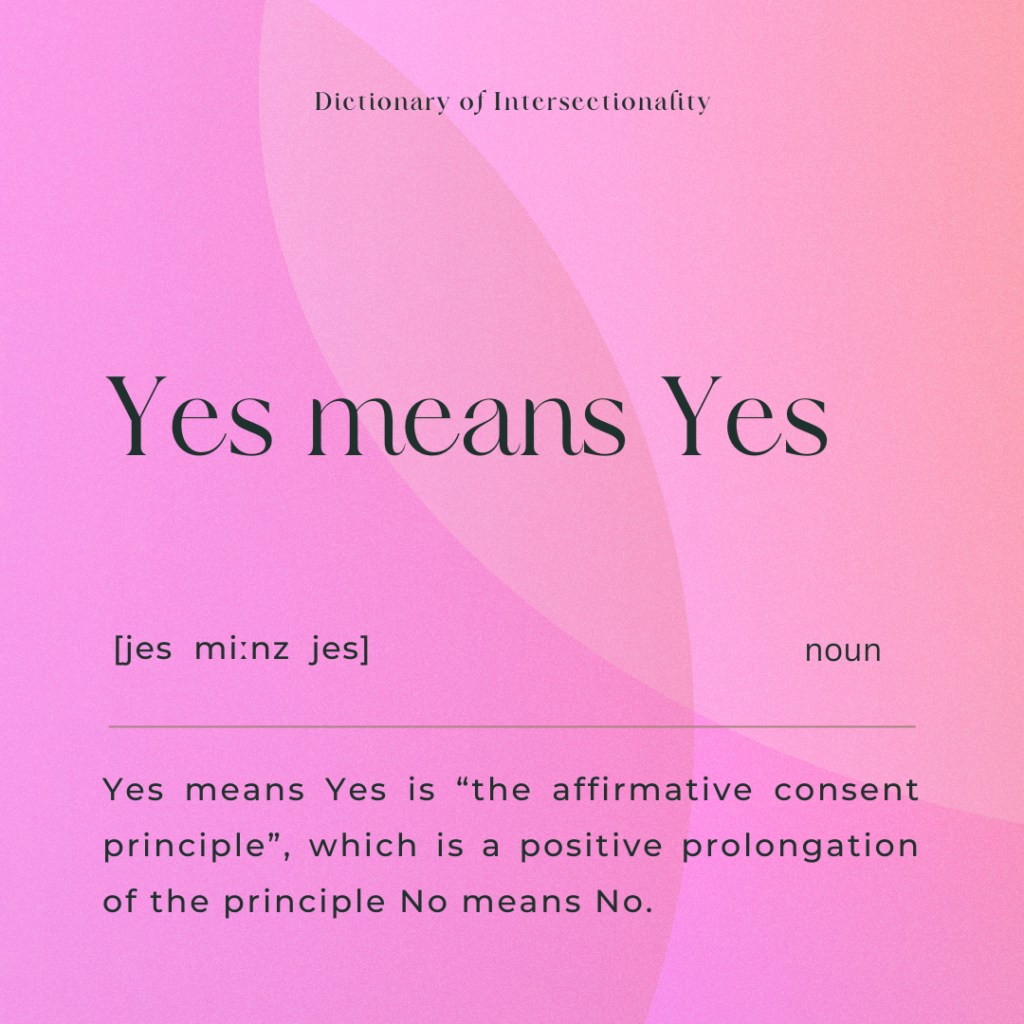
“Yes means Yes” is “the affirmative consent principle”, which is a positive prolongation of the principle “No means No”.
Consent can be given by words or actions, as long as those words or actions express clear permission regarding willingness to engage in sexual activity. Silence or lack of resistance, in and of itself, does not demonstrate consent.
The idea is to have a clear and explicit expression of a person’s will, and consent should be clearly and freely communicated.
The “Yes means Yes” approach means that if the person sits silently and does not indicate affirmatively, clearly in words, that they are interested in having sex, then the partner is prohibited from moving forward with the sexual activity.
“Yes Means Yes” is also a book written by Jaclyn Friedman and Jessica Valenti. The book consists of a series of essays by various authors, which share the central theme of preventing sexual violence.
See more resources
This video explains consent in different scenarios
Klein, E. (2014). “Yes Means Yes” is a terrible law, and I completely support it. VOX. https://www.vox.com/2014/10/13/6966847/yes-means-yes-is-a-terrible-bill-and-i-completely-support-it
Mettler, K. (2018). ‘No means no’ to ‘yes means yes’. Washington Post. https://www.washingtonpost.com/news/soloish/wp/2018/02/15/no-means-no-to-yes-means-yes-how-our-language-around-sexual-consent-has-changed/
